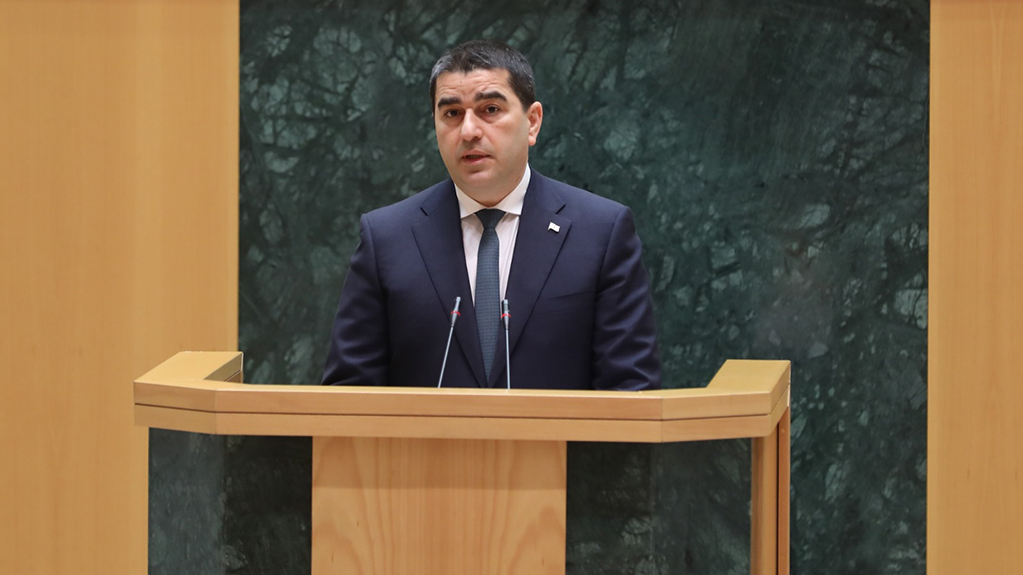The draft law restricting independent media and civil society, approved by the Legal Affairs Committee yesterday, will be presented to the plenary session today. According to the decision of the Parliament Speaker Shalva Papuashvili, representatives of online and print media, as well as radio, will not be allowed in the building.
News
Shalva Papuashvili made a comment on this issue with TV media journalists who are not affected by the ban introduced by him.
"The purpose of the presence and work of the media in the parliament building is to cover the activities of the parliament so that the public can understand the ongoing processes, discussions, and procedures. There are 340 accredited journalists in the Parliament of Georgia, with 290 representing telemedia and 17 representing television. Therefore, according to the current regulation, 290 journalists from 17 television stations can freely enter the building of the Parliament of Georgia.
As for the online media, during a bureau meeting, a journalist from the online publication Publica entered to protest - she unfurled a poster. Yesterday, the intention of these individuals, as media representatives, was to protest. They had also prepared posters. You can see that they stood in front and protested. Therefore, their purpose in entering the parliament was not journalistic activity, but to register a protest, which is understandable, but this is not journalistic activity,"Papuashvili said.
A journalist from one of the TV companies asked the chairman of the parliament if she records a protest in the parliament tomorrow, does this mean that all journalists from other TV companies - Imedi, Rustavi 2, Mtavari Arkhi - should be banned from entering the building, to which Papuashvili's answer was:
"The number of journalists from online publications is only a few dozen, if that many, and you can see that absolutely all journalists came here to protest. It is a misuse and a violation of journalistic ethics when you use your accreditation. You enter the building that accredited you to carry out journalistic activities and inform the citizens about what is happening in the parliament, but instead you express your civic positions. Yesterday, all these journalists then circled the parliament with various posters, shouting with loudspeakers, thereby confirming that this decision was correct. They have no interest in journalistic activity; they are interested in disrupting the process."
On April 15, before the discussion of the Russian law in the Legal Affairs Committee of the parliament, accredited journalists from online media were refused entry to the parliament. Prior to that, they were also not allowed into the legislative body on April 8, when the draft law on so-called Foreign Agents reintroduced by Georgian Dream was registered at the bureau session.
"First of all, this Russian law applies to those online media that exist mainly with the support of international organizations. The parliament should at least allow us in symbolically and listen to us; maybe I won't shout, but they don't let us in so that our voices cannot be heard. We will stand here until we prevent the adoption of this law," said Gela Mtivlishvili, the Editor-in-Chief of Mtis Ambebi on April 15.
In addition to Mtis Ambebi, representatives from Interpressnews, Radio Liberty, Studio Monitor, Netgazeti, Publika, and other media outlets cannot attend the discussion of the Russian law in the parliament.
The Charter of Journalistic Ethics of Georgia calls on the Parliament to reject discriminatory practices against online media and to create favorable working conditions for journalists in the Parliament building.















